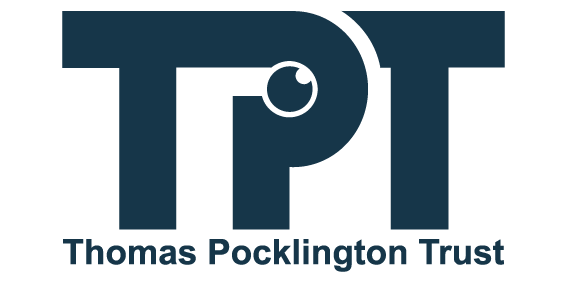Exam season and assessment weeks are never a fun time to be a student! But don’t worry! In this guide you will find out how other blind and partially sighted students keep their preparations manageable and accessible with top tips. Learn the great hacks and techniques they have developed to make exam prep easier!
Give Yourself the Best Start
Think ahead – revision works best when you have it in mind every day of your course. Putting the right habits in place from the beginning of your studies will make revision easier at exam time!
- Think about where you sit in class – is there a distracting echo in the back corners. Or is there a good spot to get optimal sound recording quality if using a recording devise?
- Talk to the lecturer beforehand about the aim and objectives of the lesson, and key skills they hope to see you develop. This can help you to focus on the most valuable content.
- Summarising the lesson in quick-to-reference notes can be really useful to solidify your learning. And it can help when navigating back through your notes when it comes to deadline season.
Callum, Modern Foreign Languages graduate: “I quickly realised the importance of taking responsibility for my learning and needs whilst studying. I had to personally understand my support needs and learn how to explain those needs in a succinct way… I recognised the importance of speaking with all lecturers regularly, and building a positive relationship with them, so I had a better chance of getting what I wanted from my course”.
Managing Deadlines
Why do exams, coursework deadlines and assessments happen all at once? It creates a couple of intense weeks at the end of term, with conflicting priorities and schedules to accommodate the revision and preparation time you need. So, what are some things you can do to keep everything on track?
Cerys: “I worked with my Specialist Support Professional for Vision Impairment (SSPVI) in my first year and at the beginning of each semester to map out the deadlines I had to work to. We would look at the extension or extenuation policies, and how to submit each essay. We would create time plans and set up phone and calendar reminders for all of my essays and arrange meetings at least 2 or 3 days before the submission date. That way if there are any issues or need to apply for extenuation, the SSPVI can help with this.”
Accessible Revision Tips
Many revision techniques that schools, colleges and universities recommend rely heavily on visuals – colour coding, mind maps and diagrams. What are the accessible, assistive technology friendly alternatives that blind and partially sighted students could benefit from?
Claire, currently studying Spanish and Philosophy BA: “If you use Microsoft Word to take notes, you can use Heading styles to mark different topics, organising your notes into easy-to-navigate sections you can skip between using your screen reader’s Browse mode. In other text editors, it can be helpful to add symbols or punctuation marks, to categorise different sections or important information that you can then search for.”
Maymunah, studying Psychology: “Make your notes meaningful. Deeper processing strengthens recall – do you really understand the content, or are you just trying to memorise it? What links can you make between concepts, topics and theories? Also, consider how else you could work with and organise this information – try transforming your notes into another format like voice recordings, explaining to a friend or even talking to yourself in the mirror!”.
Technology
Another way to support your exams and revision is by using technology. Technology can help you organise and sort your revision notes and even make them more fun. We have two resources dedicated to the best apps for helping you organise your notes in written and audio forms.
And don’t forget about AI. AI can be an extremely powerful tool for helping you to organise your thoughts, to find the information you need in long passages of text, to summarise and simplify complex concepts, and more! To learn more, why not check out our page?
Work on Your Recall
Revision isn’t just reading over something again and again, or re-watching lectures. Interacting with and using the content is important to maximise what sinks in. What are some of the ways this can be achieved?
Maymunah, studying Psychology: “Study, test and re-test! Once you have revised a topic remember to go back and repeatedly test yourself to ensure you can recall the information accurately. Challenging yourself to repeatedly remember information you have memorised optimises your recall ability”.
Claire, studying Spanish and Philosophy BA: “For long texts or articles, read the whole article or paragraph first to get a general overview then go through it line by line to focus on the details. Also, for screen reader users, try out different voices to find ones you’re really comfortable with. The content will become easier to understand, and it is important you’re not focusing on the voice but on the content you’re listening to”.
Referencing Software Recommendations
Proper academic referencing can be a laborious and intensive process that can get tricky. So, how can you make referencing smooth and simple?
Hope: “I use RefWorks, with ZoomText software to magnify the screen. I log into the software and it gives me the option to pick my university’s version of Harvard referencing. Then you can add it to your bookmark bar on your internet browser so that when you are on a journal you would like to reference, you just select the bookmark and it generates its reference for you, which makes things a lot easier. You can also add it as a plug-in to Microsoft Word so you can do in-text references as you are drafting your essay”.
Be Kind to Yourself
Remember, you are only going to achieve your potential if you put your best self forward. One of the most important of our revision tips is to take a break when you need to, create a distraction free and comfortable workspace to immerse yourself in, and listen to how you are feeling.
Maymunah: “Keeping your spirits up throughout your studies can be tough but doing this will help give you more time and attention when it comes to revision. Whether it’s face-to-face or over a virtual platform, find a study buddy – it can really help! Having a study buddy is a great way to share your understanding and gain new ways of thinking that you may have not thought of before, as well as a new source of motivation”.
Student Top Tips: What to do Before Your Assessments
- Talk to your lecturers about the assessments they are designing this year and how they compare to others you have sat before. There may be a new style of questions or tasks, or coursework assignments instead of exams. Make sure you understand what will be asked of you, so you can anticipate any access needs.
- Check all the materials you need are accessible as soon as possible. Make sure you have access to textbooks and reading for the content of the assessment and that any revision materials lecturers provide are formatted so you can use them easily.
- Ask to test any new online exam platforms or video recording software for presentations. This can help to identify accessibility issues. Training can be helpful to learn how new systems work with assistive technology, so you can be confident navigating them on the day.
- Think carefully about your reasonable adjustments, and how your working style fits with the assessment. If you have a 24-hour window to complete the exam, do you focus best in the morning or afternoon? Consider your strategy for completing the assessment. Speak to the university Disability Support team as soon as possible to ensure the support in place will be as effective as possible. RNIB has a checklist for making reasonable adjustments for exams, on their website, which can help you with this. Or The Good Schools Guide has an in-depth resource about exam access arrangements, including what they are, what you are entitled to.
- If you usually have an exam assistant, there are additional factors to think about.This support may be less helpful if you are submitting a verbal response or coursework. It is best to talk to them in advance, to understand how you can work together best on the day. To learn more, check out our guide to the professionals that can support you at university, including readers and scribes which you can use for exams.
Get Involved!
Do you have some different revision tips you could share? Or questions you would really like some advice on? Check out our Facebook group to connect with fellow blind and partially sighted students! You can also contact us by visiting our Education Information Advice and Guidance Service homepage
Further Support
If you would like further support getting ready for your exams and assessments this year, why not get in touch with our Education Information Advice and Guidance Service! Or why not read RNIB’s page about preparing for exams, to discover more top tips?
Student Minds has a helpful resource on their website, full of ways to support your mental health before, during, and after your exam. The Education Hub has an informative page with tips on how to keep calm during the exam season, for further support.







